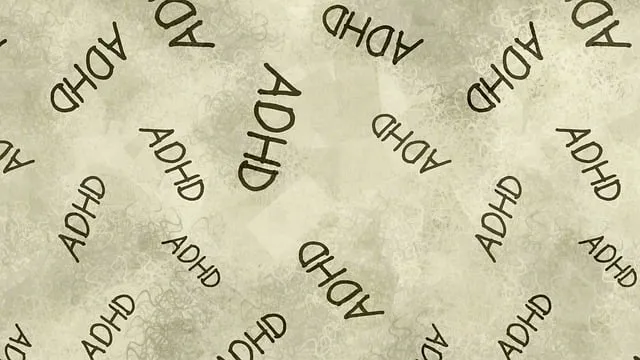Kaiser Permanente's behavioral health center in Northglenn utilizes public awareness campaigns and interactive workshops like Stress Management Workshops Organization, leveraging 'Mind Over Matter' principles. These initiatives target diverse audiences with tailored messaging, empowering individuals to manage mental health through coping skills and positive behavioral changes. The center's strategic approach, combining storytelling, digital platforms, and community events, fosters a resilient community by breaking down barriers to mental wellness support. Evaluating success through outcomes like stress reduction and behavioral adoption ensures continuous improvement aligned with local needs, highlighting the Kaiser Permanente Northglenn model for effective mental health promotion.
Public awareness campaigns play a pivotal role in shaping community health and behavior. This article delves into the development of impactful initiatives, highlighting successful strategies employed by Kaiser Permanente Behavioral Health Center Northglenn, a leader in community-centric approaches.
We’ll explore key aspects, from understanding campaign dynamics to identifying target audiences, crafting compelling content, and measuring success through evaluation metrics. By examining these elements, we aim to empower public health professionals in creating effective campaigns that drive positive change, as demonstrated by Kaiser Permanente’s innovative efforts at Northglenn.
- Understanding Public Awareness Campaigns: Their Role and Impact
- Kaiser Permanente Behavioral Health Center Northglenn: A Community-Centric Approach
- Identifying Target Audiences for Effective Campaigning
- Crafting Engaging Content: Strategies for Behavior Change
- Measuring Success: Evaluation Metrics for Public Health Initiatives
Understanding Public Awareness Campaigns: Their Role and Impact

Public awareness campaigns play a pivotal role in shaping societal attitudes and behaviors, especially when it comes to mental health initiatives like those being promoted by Kaiser Permanente behavioral health centers, such as the one in Northglenn. These campaigns serve as powerful tools to educate the public, dispel myths, and foster understanding around complex issues. By utilizing various communication channels, they reach a wide audience, potentially impacting individuals’ perspectives and encouraging positive changes.
The impact of well-designed awareness campaigns extends beyond immediate information dissemination. They can drive cultural shifts, encourage help-seeking behaviors, and promote the adoption of healthy coping strategies. For instance, Kaiser Permanente’s Stress Management Workshops Organization leverages evidence-based practices like Compassion Cultivation to empower individuals with Mind Over Matter principles, ultimately enhancing overall well-being in the community.
Kaiser Permanente Behavioral Health Center Northglenn: A Community-Centric Approach

The Kaiser Permanente Behavioral Health Center Northglenn stands as a beacon of community-centric healthcare, prioritizing emotional well-being promotion techniques through accessible and tailored services. This center embraces the concept of ‘Mind Over Matter’ principles, acknowledging the profound impact of mental health on overall wellness. By fostering strong community ties, they offer a safe space where individuals can learn coping skills development strategies suited to their unique needs.
The approach at Kaiser Permanente Behavioral Health Center Northglenn goes beyond traditional treatment, focusing on empowering community members with the tools necessary to navigate life’s challenges. Their services are designed to be inclusive and tailored, ensuring that everyone has access to support for their emotional well-being. This holistic perspective not only addresses immediate needs but also equips individuals with long-lasting coping mechanisms, fostering a more resilient and thriving community.
Identifying Target Audiences for Effective Campaigning

Identifying target audiences is a critical step in designing successful public awareness campaigns, especially when focusing on sensitive topics like mental wellness and burnout prevention within healthcare settings. For example, at Kaiser Permanente behavioral health centers in Northglenn, understanding the diverse demographics and psychographics of their community is essential. This may include tailoring messages for different age groups, cultural backgrounds, and those facing unique challenges such as long-term caregiving or financial stress.
By segmenting audiences, campaigners can deliver tailored Mental Wellness Journaling Exercise Guidance and Burnout Prevention Strategies for Healthcare Providers. Reaching individuals where they are—whether through digital platforms, community events, or partnerships with local organizations—ensures that messages resonate and encourage positive behavioral changes. This targeted approach increases the likelihood of a successful campaign, fostering open conversations about mental health and burnout prevention within the Northglenn community and beyond.
Crafting Engaging Content: Strategies for Behavior Change

Crafting compelling content is a key strategy to engage audiences and drive behavior change, especially when addressing sensitive topics like mental health. At Kaiser Permanente behavioral health centers in Northglenn, for instance, content creation goes beyond simple information sharing; it involves storytelling, personal narratives, and interactive elements designed to resonate with diverse communities. By integrating these strategies, the center aims to break down barriers and encourage individuals to seek support when needed.
Effective content should guide people through a journey of self-discovery, offering practical tools like Crisis Intervention Guidance and Emotional Regulation techniques that can be easily incorporated into daily routines. Encouraging self-care practices is another powerful way to empower individuals to take charge of their mental well-being. Through engaging narratives and accessible resources, Kaiser Permanente’s approach ensures that valuable insights are not only shared but also acted upon, fostering positive behavioral shifts within the community.
Measuring Success: Evaluation Metrics for Public Health Initiatives

Measuring success is a vital aspect of evaluating public health initiatives, such as those undertaken by the Kaiser Permanente behavioral health center Northglenn. To accurately assess the impact of awareness campaigns, several key evaluation metrics can be employed. These metrics go beyond simple reach and engagement to delve into tangible improvements in community well-being.
For instance, tracking changes in mental health outcomes, like reductions in stress levels or improved emotional regulation, as measured through surveys or clinical assessments, provides concrete evidence of campaign effectiveness. Additionally, monitoring the adoption of healthy behaviors promoted by these initiatives—like increased participation in Inner Strength Development programs—can offer insights into long-term impact. Moreover, evaluating feedback from mental health professionals through Risk Management Planning processes can help identify areas for improvement and ensure ongoing effectiveness in addressing community needs.
Public awareness campaigns, as demonstrated by initiatives at the Kaiser Permanente Behavioral Health Center Northglenn, play a pivotal role in community wellness. By understanding target audiences and crafting compelling content, these campaigns can drive meaningful behavior change. Evaluating success through robust metrics ensures that resources are allocated effectively, enhancing public health outcomes. The strategies outlined here provide a roadmap for developing impactful awareness campaigns, with real-world examples from Kaiser Permanente serving as a testament to their effectiveness.






